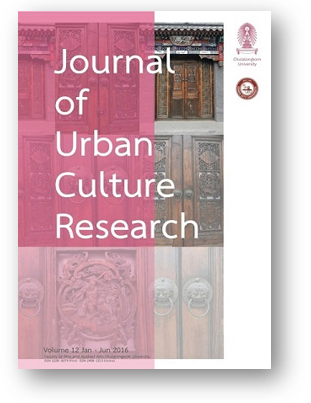Contested Places and Ambivalent Identities – Social Change and Development in UNESCO Enlisted Dubrovnik
DOI:
https://doi.org/10.14456/jucr.2016.2Keywords:
Identity, Heritage, Sustainable development, Responsible tourism, Croatia, EU.Abstract
2016 marks the 25th anniversary for Croatia’s independence. As young nation, Croatia has undergone considerable, in part traumatic transformations, which have had significant socio-political, economic and cultural ramifications. The article aims to provide an understanding of the possibilities and impediments of urban and rural sustainable development in Croatia. It will explore the ways contestations over the turbulent past, the composite present and the uncertainty of future socio-economic and cultural developments repeatedly cast shadows in negotiations over development projects. With Croatia’s inclusion in the EU in 2013, Croatia provides a constructive test-case in analysing the challenges and potentials for steering towards sustainable development in a region with a recent history of conflict and instability. The many-sided consequences of the predominant tourism-based developments in post-war Dubrovnik are furthermore of global resonance as many of UNESCO’s world heritage sites increasingly share new urban, environmental and infrastructural challenges relating to tourism.
Downloads
Published
How to Cite
Issue
Section
License
Authors authorize the JUCR to publish their materials both in print and online while retaining their full individual copyright. The copyright of JUCR volumes is retained by Chulalongkorn University.
The views and opinions expressed herein are those of the individual author(s) and do not necessarily reflect the policies or opinions of the Journal (JUCR), it editors and staff, Chulalongkorn University, or Osaka Metropolitan University.








